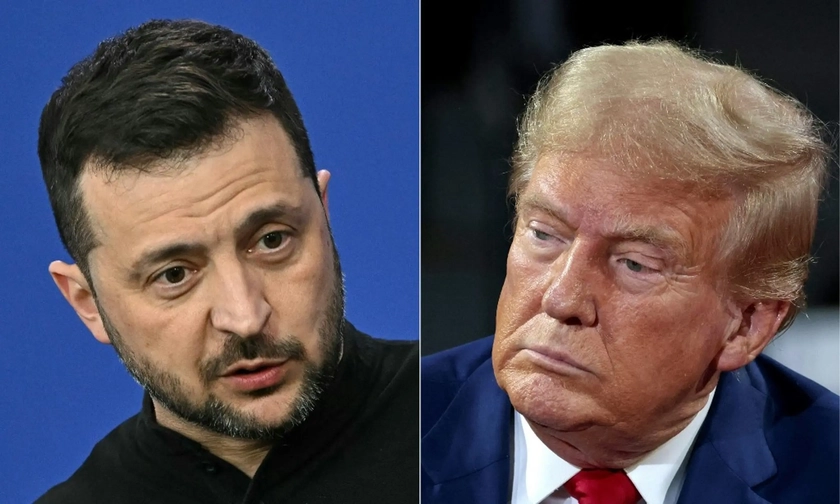The organizers of the Eurovision Song Contest have said President Zelensky will not be allowed to deliver a video message during the final on Saturday, as there are “strict rules” in place that prohibit the making of “political or similar statements.”
The European Broadcasting Union (EBU) added that Zelensky's request to address the audience, "whilst made with laudable intentions, regrettably cannot be granted as it would be against the rules of the event."
JOIN US ON TELEGRAM
Follow our coverage of the war on the @Kyivpost_official.
But in a slightly bizarre twist to the story, on Friday morning Zelensky’s office denied even asking to deliver and address Eurovision.
In a post on Facebook, presidential press secretary Sergii Nykyforov, said: “The Office of the President of Ukraine did not contact the organizers of the Eurovision Song Contest with the offer of Volodymyr Zelensky's online performance during the finals or at any other stage of the contest.”
The English city of Liverpool is hosting the musical extravaganza, after Britain agreed to accommodate the song contest, instead of 2022 winner Ukraine due to the war.
The final on Saturday is set to include a special tribute to Ukraine, with 11 of its artists performing, including last year's winner Kalush Orchestra.
Video clips will be shown during the evening to showcase different parts of the country.
Speaking to the BBC on Thursday, before the EBU’s announcement, Zelensky said of this year’s contest: “I have great respect for the United Kingdom and its society. It is an amazing country.

Worldwide Marches Planned This Weekend Condemning 3rd Anniversary of Russia’s Full-Scale Invasion of Ukraine
“From the very start my opinion has been that if we can’t host Eurovision, it should take place in one of the countries that share a border with us, such as Slovakia, Poland or another country our people can reach easily.”
He added: “The main thing is that the contest is taking place. Let the people show their talent.”
There had been speculation that Zelensky would make a surprise address as part of the official program.
The EBU said: “The Eurovision Song Contest is an international entertainment show and governed by strict rules and principles which have been established since its creation.
“As part of these, one of the cornerstones of the contest is the non-political nature of the event.”
The UK government on Friday, May 12, hit out at European broadcasters for banning a message by Ukrainian President Volodymyr Zelensky at this weekend's Eurovision final, for fear of politicising the event.
"The prime minister believes it would be fitting for President Zelensky to address the event, and we're disappointed by the decision from the European Broadcasting Union," Sunak's spokesman said.
"The values and freedoms that President Zelensky and the people of Ukraine are fighting for are not political, they're fundamental.
"Eurovision themselves recognised that last year when they suspended Russian participation from the competition," he added, while declining to say if the UK would intervene with the BBC, the host broadcaster.
You can also highlight the text and press Ctrl + Enter











